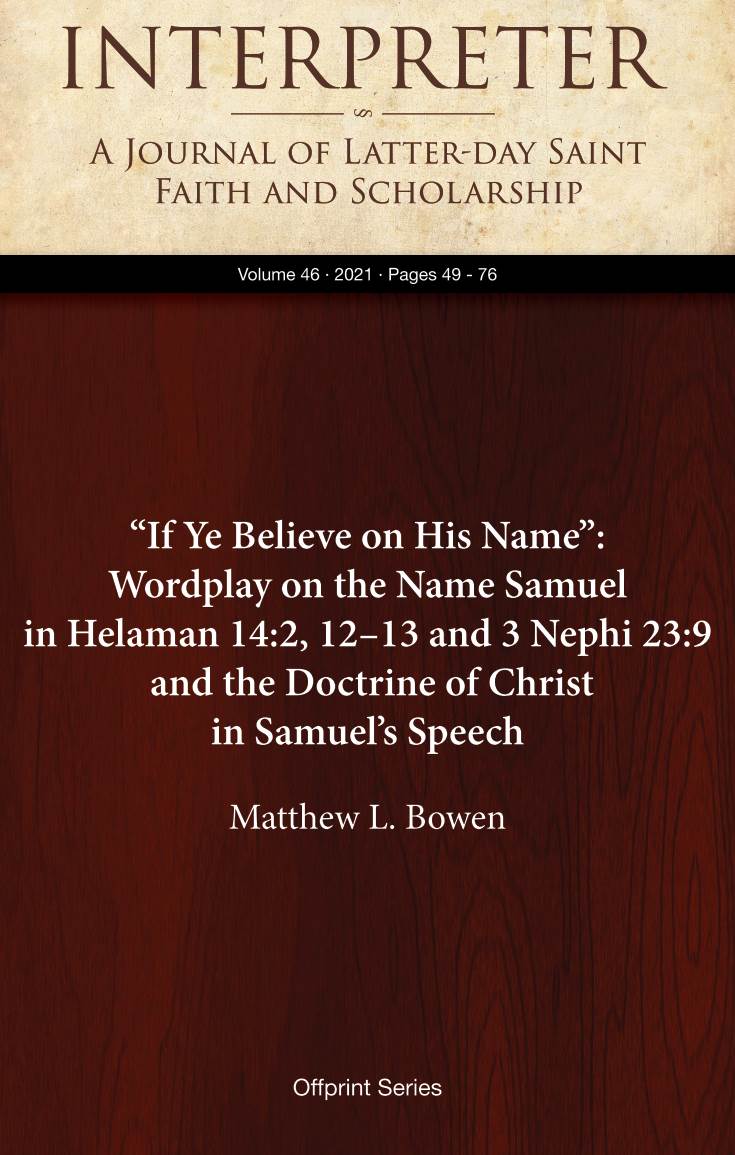

DEBUG




































Another great way to enjoy this content.
Learn More

Abstract: The Semitic/Hebrew name Samuel most likely means “his name is El” — i.e., “his name [the name that he calls upon in worship] is El” — although it was also associated with “hearing” God. In the ancient Near East, the parental hope for one thus named is that the son would glorify El; or, like the biblical prophet Samuel, the child would hear El/God. The name šĕmûʾēl thus constituted an appropriate symbol of the mission of the Son of God who “glorified the name of the Father.” Jesus may have referred to this in a wordplay on the name Samuel when he said: “I commanded my servant Samuel, the Lamanite, that he should testify unto this people. Samuel the Lamanite had particularly emphasized “believ[ing] on the name” of God’s Son in the second part of his speech in advance of the latter’s coming. Mormon took great care to show that all of the signs and prophecies that Samuel gave the Nephites of Zarahemla were fulfilled at the time of Jesus’s birth, death, and resurrection.












Email sharing only available when logged in.
Log In or Sign Up now.
Choose a size:
Copy Code: